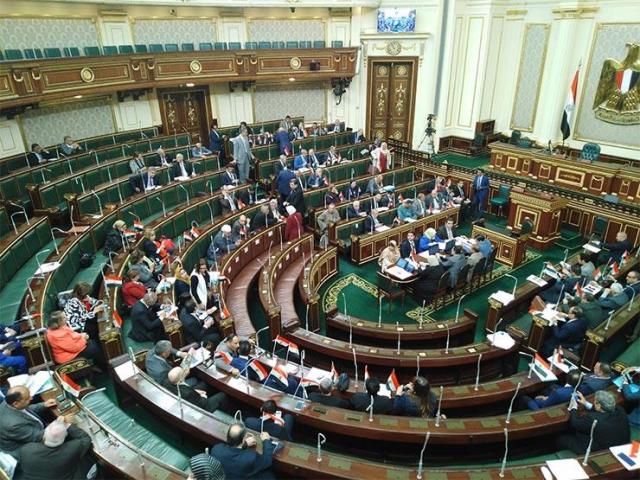
“They don’t need our subsidy”: The Egyptian Initiative calls on the government to reject the request of the Industry and Energy Committee in Parliament to reduce natural gas prices for Energy-intensive Industries
Press Release
The Egyptian Initiative for Personal Rights calls on the government to reject any pressure exerted by the Industry and Energy Committee in the Parliament on Minister of Petroleum Tarek El-Molla for a third reduction in natural gas prices for industries. Those pressures have been increasing for months on the part of manufacturers, and were strongly manifested in the Minister of Petroleum's meeting with the Industry and Energy Committee in the Parliament in the middle of this month.
This requirement constitutes an encroachment on the concepts of "energy poverty" and "energy justice", because it drains energy resources for the benefit of these factories at the expense of making them available to Egyptian families, especially the poorest. It also contradicts the Goal 7 of the Sustainable Development Goals 2030: "Clean energy at affordable prices", because it sells polluting energy to factories at lower prices than they are, thus impeding the shift towards clean energy.
The problem boils down to:
Inequitable burden-sharing: The owners of politically influential companies have kept their earnings to a large extent, in light of the plan to reduce energy subsidies implemented by the government since 2014.
In 2014, the government approved a one-time increase in the selling prices of natural gas to these plants, and then reduced the price twice in 2019 and 2020. While it made more than five increases in energy prices directed to citizens during the same period, on top of which are butane, diesel and electricity. Thus, Egyptian households have taken on a higher burden than companies to reduce government spending on energy subsidies.
Lack of transparency: The government does not announce the subsidies it directs to those companies that receive subsidized electricity, as well as natural gas, diesel and even LPG canisters (Hotels and restaurants).
Creating earnings that are not matched by risks (rent): The rent resulting from energy subsidies to these facilities is estimated at about 80 billion EGP (~ 5 billion USD) in the year 2017/2018 alone. After the subsidy reduction plan, a number of politically influential monopolistic, energy-intensive, industries that are dependent on subsidized natural gas still received a hidden, undeclared subsidy estimated, according to the Egyptian Initiative's calculations, of nearly 20 billion EGP (~ 1.2 billion USD), in the current year 2020-2021 (it decreased due to lower global energy prices). And the estimate of the subsidies that these companies receive increases by calculating the value of the opportunity cost (by using it in other useful ways). The value of the subsidy increases even more if we calculate the cost on the environment (the environmental impact of what the government subsidizes).
Impunity: Natural gas-intensive companies do not pay their gas bills. The Minister of Petroleum indicated that the accumulation of arrears on those companies is estimated at 6 billion EGP (~ 380 million USD). Among them are ceramic companies, one of which is owned by a member of the parliament itself, Mr. Mohammad Abo al-Enein. Meanwhile, service is cut off for any citizen who refuses to pay energy consumption bills.
Accordingly, EIPR rejects any new reduction in the prices of natural gas and electricity for companies and factories, for the following reasons:
- Energy subsidies directed at producers represent invisible costs that affect the well-being of citizens, by distorting relative prices in the economy, which encourages excessive energy consumption and misallocation of resources.
- In the case of energy importing countries, this subsidy leads to the rapid depletion of natural energy resources, such as gas and oil, which weakens the trade balance as a result of the increase in imports of these materials. This is how Egypt transformed from an exporter of natural gas into an importer back in 2013.
- Energy subsidies directed at producers are mostly harmful subsidies, because they lead to the specialization of the private sector in industries that are less dependent on labor and more energy-intensive, and it is an inefficient specialization. Therefore, the International Monetary Fund describes this subsidy as “harmful to economic growth” and “increases inequality”.
- Most of these energy-intensive industries, such as iron, fertilizers and ceramics, are export industries, meaning that in the end, they are subsidies that benefit the foreign consumer.
Alternatives presented by EIPR that achieve sustainable development goals:
- Gradually abandon energy subsidies provided to companies and producers of all kinds. Especially if it benefits a politically influential minority.
- Replacing energy subsidies with a strategy to support deepening industrialization, according to the needs of the local market. The support in this case takes forms such as technical support and supporting proper employment, so that the subsidy does not turn into rent in the pockets of the owners of the corporations.
- In the case of energy-intensive industries, there is a need to replace fuel subsidies with support for a quick green transition, to encourage the expansion of the use of clean, sustainable energy.



